Your GIPED Programme is fascinating. Please tell us about it. And what makes you think that’s what our youth and students need?
Thank you very much for this brilliant question. We’ve been working on GIPED for two years now. Hopefully, some people are beginning to listen to us. So what is GIPED? GIPED is basically targeted at that graduate who should be better utilized in society but finds himself working as a bartender. He is underemployed. He is that mathematics graduate who should be very useful within the science and technology field but earns his living as an Uber driver. He’s underemployed and he’s frustrated. He does that for five, seven years, becomes psychologically demented and becomes depressed. After some time, he thinks about his mates who have gone far so he joins a gang and begins to kidnap people for ransom. So what we’re saying in GIPED is that we love the educational system. We’re not challenging the educational system. We love the educational system that is diverse, that speaks to people in arts, speaks to people in sciences and speaks to people in philosophy. Brilliant. What we’re saying is that the educational system needs to advance a bit further. There is value in going into a discipline. What I mean by this is that, if I invest four or five years of my life in reading history, along the way, I will become attached to history and will begin to love it. Even if history was not my first choice and I had actually wanted to read medicine. But that investment over time, attending lectures, passing exams, getting a receipt, iteration over the years and so on and so forth, will make me say wait a minute, I’ve invested in this thing therefore I should be able to benefit from it. All right? So you finish your degree programme and they hand you a certificate. And you suddenly find that you are running from pillar to post.
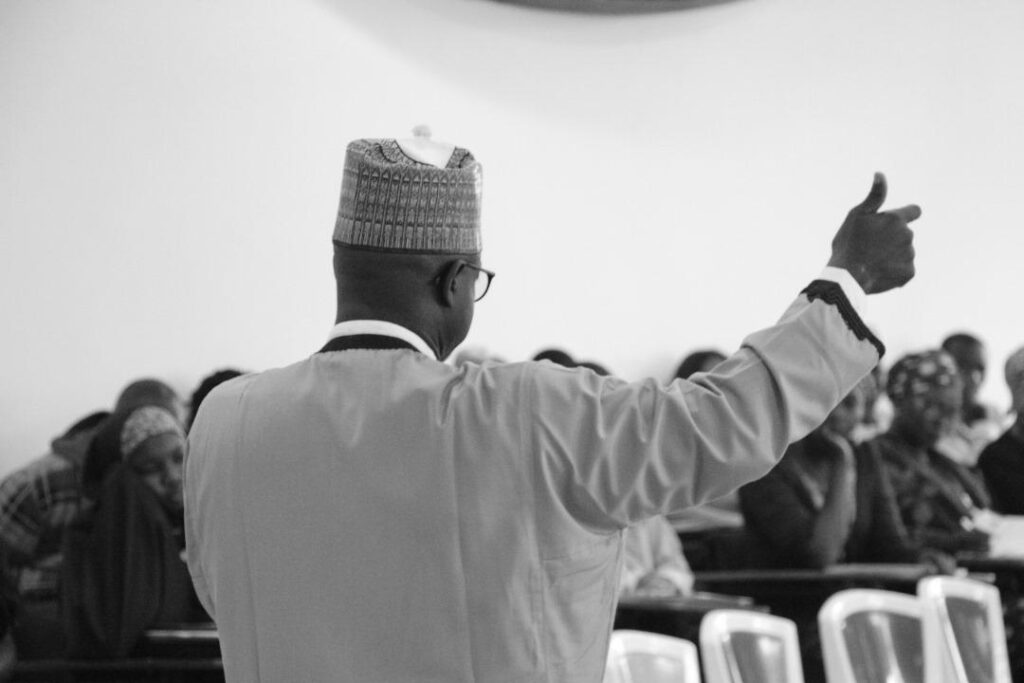
There’s nothing for you to do. Eventually, you end up just getting by in life after all that time and investment. So what we’re saying in GIPED is that within the university system, within the higher education system, we need to bring a crop of professors, a crop of lecturers and certify them, GIPED. GIPED means Graduate Innovation Programme for Enterprise Development, within a discipline. So we can have a couple of professors within social sciences for example and make them GIPED certified. This means that with GIPED certification within the discipline, in the final year, at least one semester of that final year, would be dedicated to the entrepreneurialisation of the discipline. Entrepreneurialisation of discipline basically means that we take a discipline like English language or English literature and after four years, six semesters or what have you, we will dedicate one semester where we will now begin to see the entrepreneurial intent of that discipline. There’s no academic endeavour that is actually designed for you to go and get a job. It is the colonial system that made it that way; to train people so that they can come and serve us. No. People actually get an education so they can solve societal problems. Go to Socrates, go to Plato to understand the essence of philosophy. People came together in the garden to discuss problems. This is how these disciplines evolved. They discussed problems. They would agree on certain things. They would go and test it out to make life and the world a better place. So, if you’re an English language student and in the last semester, we put you through GIPED, through the professors – please understand that we’re not saying we want to intervene directly with the students, no, we want to intervene within the system for professors to handle it – so you will, as an English language student, be trained on the art of identifying and recognizing that there’s entrepreneurial value in English. You’ll come out to understand the entrepreneurial intent of English.
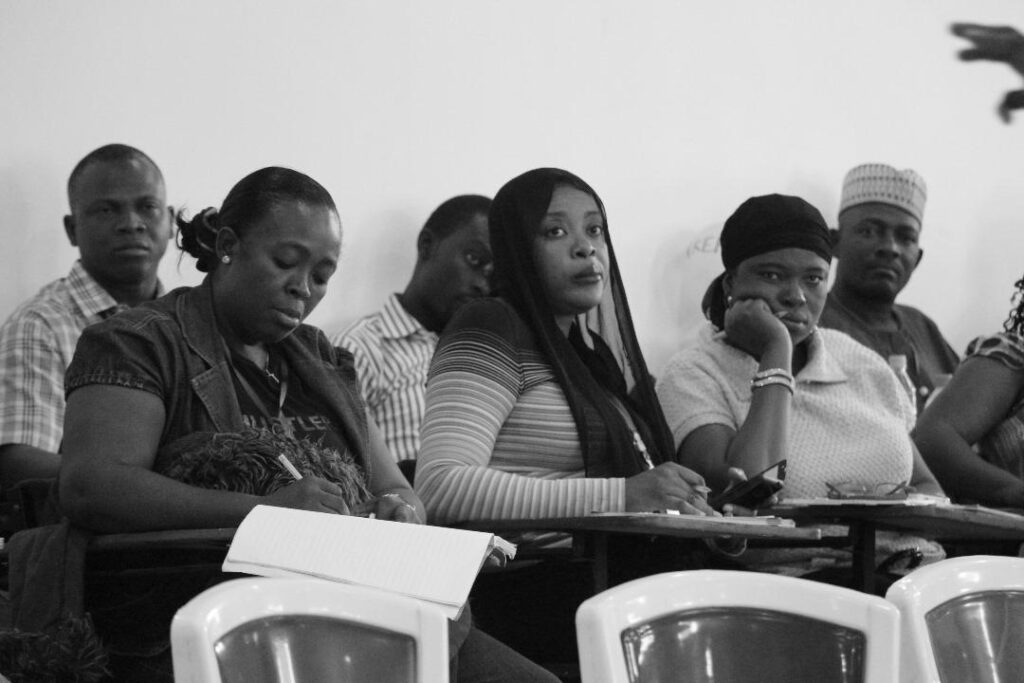
How can you commercialise English language? What are the case studies? How to understand the entrepreneurial value of English language. How do you pitch? These things are generic, but in this case, we want you to be able to look at it from the prism of somebody who is reading English. So at the end of the day, we want a graduate to put together a project; a project that actually speaks to how he can create value in society; how he can solve problems in society with English language and also make money out of it. So when you are finished and you come out with a project, your project will be like a business plan. You will not dump it in the library. Instead, through your youth service year, you will begin to look at ways in which you can implement it. You may say to yourself, let me go to Northern Nigeria. Let me set up English camps. Let me teach children how to speak English. Let me go to primary schools. Let me work with NGOs. Let me look for a donor. You will begin to see the opportunities around you of how you can entrepreneurialise English language. And same can be replicated across all disciplines. So, in a nutshell, this is what we are trying to do with the GIPED programme.
Are there any areas of collaboration or synergy between KBS and Lagos Business School (LBS) at all?
Not so much. We only have collaborations with a branch of Lagos Business School, which is the entrepreneurship arm of Lagos Business School, the Enterprise Development Center (EDC). So because of EDC’s entrepreneurial inclination, we work together on quite a lot of interventions. One prominent one is the National Accreditation Programme for Business Development Service Providers, BDSP. So if you are like a ‘doctor’ to an entrepreneur, that’s what we call a BDS, a Business Development Service Provider, you as an entrepreneur cannot go to this high flying consultant to say, help me with my business plan, help me with my cash flow. But we can create small, small doctors that can solve the problems of MSMEs. So together with the EDC, a branch of Lagos Business School, we are working with the federal government of Nigeria to build a tribe of BDSPs. So we are two accredited institutions in the country that help to train those people and certify them within the National Business Development Service Provider Accreditation license. So, without that license, if you practice business development service in this country, it is illegal and you can be prosecuted. So that’s one area where we collaborate to intervene. Other areas of collaboration are lecturer exchanges. Some of us go to EDC when they have programmes in Abuja or they have programmes here in Kaduna. They may want us to participate through our professors. Or sometimes, when we have one or two things in Lagos, we may seek their support with their professors. So yes, in a way we do collaborate, at least with the EDC half of Lagos Business School. I think the reason why we don’t have any synergies as such with Lagos Business School is because they are more focused on corporate Lagos. And corporate Lagos is a big deal, with all the major conglomerates and the kind of support they receive from corporate Lagos, many of whom are very much vested in their MBA programs and so on. On this side of the divide, we don’t have any corporate Kaduna or anything like that. The major corporations are there in Lagos and the decision making for capacity building is in Lagos. Around here, what you have are branches, subsidiaries or warehouses so we really cannot intervene from that perspective. We cannot synergize from that perspective, so that’s really why we don’t do much with the Lagos Business School. Otherwise, I think at the end of the day, our values are similar, thought processes are similar and at the end of the day, we just want to make the country a better place. They are looking at it from a corporate perspective while we are looking at it from a broader perspective, where we’re able to include the young people and we’re also able to support people based on their functional responsibilities, particularly the public sector which is where we have more clients.
You are a man of many parts, having been a banker for many years, an economic advisor to the Kaduna State government and the World Bank amongst other things. But tell us about your appointment as the Vice President of Business Development (Africa) at Transcontinental University, Ohio.
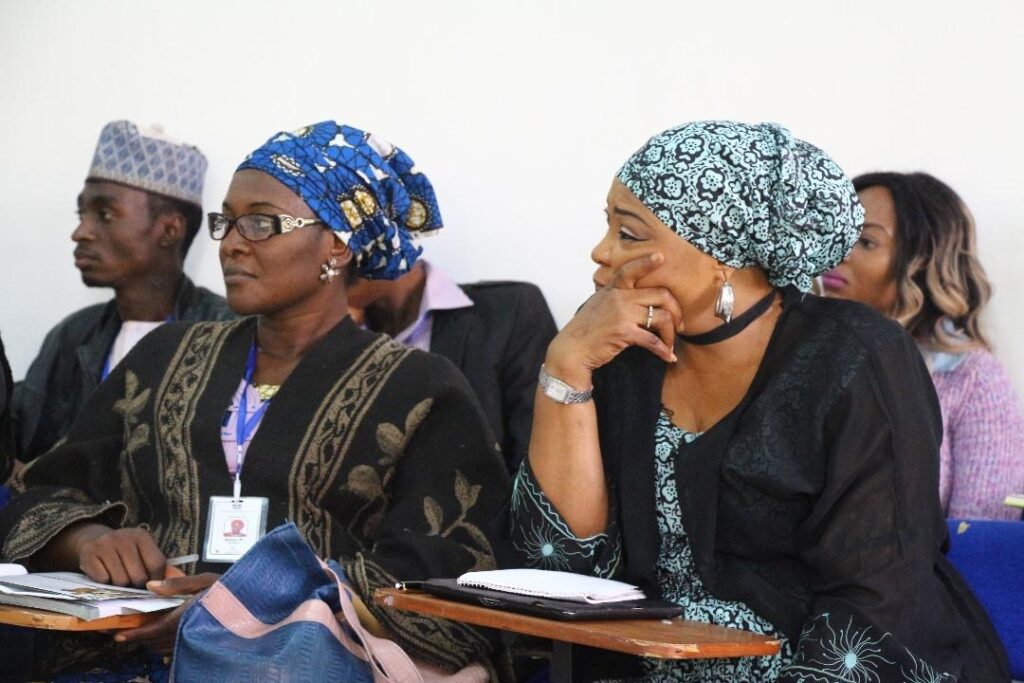
Okay, with the Transcontinental University, there’s my former professor Ted Sun who is a Chinese-American. And during my doctoral program, he was the one who really exposed me. Shall I say he expanded my academic prowess. One of the things that he showed me was the importance of thinking systemically. I just want to quickly use that as an intro. That many of our challenges as a people, as a country, is the fact that we are over-linear. So let me give you a quick example. There are no jobs. So create a fund, put more money at it, and then create jobs. No, there is a systemic relationship that if well managed, on its own, the system will begin to create jobs. If you throw money at a problem, what then happens is that the problem will manifest itself around just extracting money from you. So it will recalibrate itself and then tomorrow, you have to throw money at it again. Talk about banditry and Boko Haram. The reason why they persist is because a lot of our managers, in fact, one hundred percent of managers, do not understand what it means to be systemic in their thought process. They’re very linear. So they buy guns, buy this, buy that, kill all the bandits, report it in the news and then tomorrow, another set of bandits have come. I would like to share with you now the policy analysis of the unintended consequences. Sometimes I laugh when I see our (Nigerian) people. In the Bible there’s a popular verse that says, forgive them, for they know not what they do. The lack of knowledge is why man perishes, like dust. You cannot come up with a policy, and because you think from your own nuanced perspective that is a good policy, that it will work. We call it fixes that fail. So let’s pick a random policy. It can be the Badagry or Sokoto express project or any good transport policy. But the starting point of the policy has to be the analysis. What are the unintended consequences of the policy? It is by analyzing the unintended consequences that you reduce what I call the negative feedback. So you are prepared for the possible fallouts of the policy. What then happens is that if you do not do the analysis of the unintended – which will always come, you can’t get away from it – you will start fighting, struggling and getting on the defensive regarding the policy. Before you know it, you would have spent four years defending the policy and your tenure would be over before you’re even able to implement it. It then becomes yet another white elephant project. And of course some money might have also been spent in the process too. So, Transcontinental University is Ted Sun’s approach to building on systems, having a systemic driven thought process. He designed a specialized university. Though it does award degrees, that’s not its essence, therefore they are not for the conventional programmes. The whole approach of Transcontinental University is to bring several disciplines together, bring an MBA, bring a doctoral etc but train them to approach life from this systemic perspective. Because the entire academic curriculum across the world, as it’s not just a Nigerian problem, is based on linearity – step one, step two, step three and so on. Therefore we don’t learn how to look at things from a holistic perspective. That’s why we teamed up with Ted Sun and we created the whole idea of Transcontinental. And I support them significantly in doing a lot of work in Africa. We are getting a few executives now to begin to see things with that mindset. It’s usually very revealing. You start to hear things like, oh really, I didn’t think about this. At some point, when we have time, I would be happy to take you through a two – day systems thinking course and I’m sure a lot of things will change in EduTimes Africa. So that’s how we started Transcontinental University.
The SDG and AfCFTA are good for Nigeria and Africa for both National and Continental development. How is KBS taking advantage of these programmes and agreements to enhance the curriculum thereby improving learning outcomes and improving regional development and economic advancement?
Fantastic question. Let me start with the SDGs. The Sustainable Development Goals. Again, the Sustainable Development Goals, if you ask me, are a slap on the face of our leaders. What these people are saying essentially is that you guys cannot think about your own sustainability. Let’s think about it for you and then push it so that you can begin to drive it. Look at poverty, look at maternal health care, look at all this and all that. Look at education. That’s what they’re saying, essentially. So since you guys cannot drive the process, let us create the narrative so that you can begin to have those conversations. No problem. The domestication of the SDGs is also very important. I remember that very well as an economic advisor and even subsequently in a lot of things I do. GIPED, for example. The SDGs are a critical element of GIPED. Through that curriculum, we are pushing the SDGs into the university system. So that if you are studying biochemistry, if you are studying geology, and you are not relating it to an element of the SDGs, then you cannot connect to the global wave of thought around that same thing. So, there’s a compulsory module in our GIPED program that actually exposes you to how the world is thinking about the generic problems that the world is facing. And what is a university? A university is a problem solving outfit, that’s why they call us Eggheads. We’re not meant to be manufacturing pieces, we’re meant to be creating employment. We’re not meant to be jumping from pillar to post begging for jobs, you know. So that is my own notion about SDGs. We have to domesticate it within the institutions, let our younger people own it, let value creators own it, and let them begin to see, from what they are learning, how they can contribute. That for me, is how you can spread the gospel of the SDGs. Coming to the African Continental Future Agreement, we’ve been having conversations lately and what I’m understanding personally, and I want to bring my own personal understanding to this space, is that if you look at the developmental arrangements of Africa, we are not well favoured. What I mean by this are the unfavorable conditions that are usually attached to IMF and World Bank Loans. Countries find themselves having to make certain economic sacrifices such as devaluing their currencies, concentration of primary products, and so on and so forth. You will see again that the arrangement actually makes Africa or Africans or poor countries revert back to the primaries. When you revert back to the primaries, again, you favour the industrialization of the West. If you study any of the trade agreements based on trade conditionalities of IMF facilities or the World Bank, you’ll understand where I’m coming from. So, for the financial trade agreement to really be effective, we must be able to produce at a higher level of the value chain. This is a cup that I’m holding here. When you degrade this and take it back to its elemental level, you will probably have some sand, okay? Now, the economics of it is more favoured for me to sell sand, for me to exchange sand, for me to trade in sand, than for me to trade in cups. Because if I take a cup outside this country, the tariff arrangement will not favour me. There’s a deliberate tariff arrangement that destabilizes Africa. So, we cannot really take things out. But if you look at it in terms of the tariffs around the primary raw materials, it’s almost zero. Which means that I can’t really compete. Now, for us in Africa, if we say we want to limit this trade to the continent, around which currency are we going to coalesce? If we have an understanding of a uniform currency on the continent, around which we can all coalesce and say, okay, this is the continental currency, then it would be very easy for us to create that exchange. Trade is a function of currency. Now, if the currencies are divided – the francophone have their own, the other countries have their own, and at the end of the day, all of us have to dollarise before making it continental – then you begin to introduce what I call disincentives. So it’s a good idea. Still very much in its infancy. But I think the African Union still has a lot more work to do. Maybe I can make a recommendation here. Maybe we can have a specific crypto attached to transactions that facilitate trade within the continental agreement. That makes it very easy. So let’s say it’s called After Coin, everyone will know the value of the After Coin. And if I have 10 After Coins, a Kenyan has 10 after coins, we know we’re speaking in terms of After Coins and then that facilitates the process. All right? But what is more is that the access routes within the continent are still very trade unfriendly. So I can’t fly to Ivory Coast now easily. I can’t fly to Morocco now easily. In some cases I must first fly all the way to France just to get to Algeria. We don’t have train routes either. Now, if you look at the original arrangements, even from the Royal Dutch Company, when they were in South Africa. When the British came into Nigeria, with the Royal Niger Company. Look at all those companies when they were in India. All these companies were basically here and in all those other countries to trade. What were the first things they put together? Access routes, rail tracks, roads, all those roads were not for us. All those roads were creating arteries, veins to facilitate what? Trade. So if you have AfCFTA, we are talking of an African continental free trade. But where is the freedom to trade when there’s no access?
Where would you like to see Nigeria in the next 10 to 15 years and how do you think we can get there?
Well, I kind of work as a futurist. I think in futures. And each time I’m talking to my clients, I say, look, Today is gone. Yesterday has happened. All we have is the future. It starts tomorrow. The first thing you want to ask yourself is what are the trends? And you can easily break it down economically, socially, politically and even technologically. Let’s take technology, for example. Nobody needs to tell you that there will soon be what I call a ubiquitous role for artificial intelligence in all our lives. It’s going to take over governments, it’s going to take over elections, it’s going to take over education, it’s going to take over the fundamentals on which we run our economies and even organizations. You don’t need to be a scientist to know that. But what I think is a critical uncertainty for Africa and for Nigeria, is to begin to ask yourself, what are the weak signals? Let me give an example of a weak signal. Not many people realized back then, when Tinubu was an activist in the times of liberation of democracy with the late M .K .O. Abiola, that he was potentially a president of the Federal Republic of Nigeria. See? Then he was a weak signal. Today he’s the president. So let’s begin to ask ourselves what are the weak signals, positive weak signals. Politically, we can see along the African continent that there is a renaissance of what I call nationalism. Particularly the Francophone countries. And they are becoming more and more backed. They are looking more towards the Russians than towards the French. And these are the people that form our entire neighbouring economic atmosphere. What’s that telling you? These are weak signals. So, for our economic arrangements with the West, we have to also begin to consider the conflicts. Because for an economy to thrive, it’s trade. So if all those countries are now going to begin to look towards Russia, would they look to us? So what kind of alignments do we need to create? How do we begin to see the implications of these trends? Now with technology, what are the weak signals? Whether you’re a lawyer today, whether you are an agriculturist today or whatever you are as a professional today, you must begin to look at things from the point of view of what? Technology. How has that been embedded? That’s a weak signal. But in the next five, ten years, it will become a reality. How has that been embedded in the curriculum or the disciplines or even in adult learning? Another interesting thing that we need to begin to look at now is there’s nothing like retirement anymore. That’s a weak signal. You can’t reach 50 or 60 now and say you’re retired. No. What are we doing in terms of education and re-educating people in their 40s, in their 50s, in their 60s? This is critical. Otherwise, they’ll soon become obsolete and become a liability. We need to start doing something in terms of educating our adults, so that they can reprogram them for the new economy. What I call the AI economy. So, I will not make any predictions. But when I speak to you in terms of trends, events, and development, you may begin to look at yourself and see where you need to make some adjustments. But really, it’s just to introduce the conversation around weak signals and then you’ll begin to see things that are likely to happen. I always like to put my audience in a state of mind where they can see alternative futures. They can see certain possibilities. Oh, this looks like a scenario. This looks like another scenario. In that case, what do we need to do in the event of this? How do you need to prepare? How do we need to take advantage of the signals? And so on.
_______________________ Dahiru Sani, PhD A Visionary Leader in Business Development, and Innovation Dr. Dahiru Sani brings a wealth of expertise and a distinguished track record in the realms of finance, business development, and education. As an associate of the Chartered Institute of Stockbroker, his academic journey is underpinned by a commitment to excellence and a robust set of professional certifications. In 2003, Dr. Sani emerged as a visionary leader, founding the Kaduna Business School (KBS). In this pioneering role, he played a pivotal part in its growth, accreditation, and establishment as a beacon of corporate education in Nigeria. Serving as the Founder and Chair of the faculty, Dr. Sani not only successfully led fundraising efforts but also provided external leadership, transforming KBS into a thriving institution. His strategic acumen continued to shine as the Vice President of Business Development (Africa) at Transcontinental University, Dublin, Ohio, USA, from 2019. Dr. Sani has been instrumental in developing growth strategies, identifying new markets, and fostering crucial corporate client relationships. From 2016 to 2018, Dr. Sani served as an Embedded Economic Adviser for the Kaduna State Government/World Bank. During this period, he made significant contributions to the establishment of an Economic strategy framework within the Intelligence Unit of the Budget and Planning Ministry, contributing to the economic vision of Kaduna State. Dr. Sani’s impactful journey in the banking sector includes a senior leadership role at Continental Trust Bank, now merged with the United Bank for Africa. Here, he directed branch management efforts, overseeing strategic growth with remarkable success. As a Senior Business Development Manager at FSB International Bank, now Merged with Fidelity Bank, he further showcased his prowess in retail banking, relationship management, and credit risk management. Throughout his illustrious career, Dr. Sani has undertaken comprehensive consulting projects with prestigious organizations such as the World Bank and the Department for International Development. Among his notable achievements is the implementation of a first class 5,000 Youth Enterprise Development Programme in partnership with the Bank of Industry. Additionally, his strategic leadership played a pivotal role in expanding the United Bank for Africa in Northern Nigeria as a regional manager. Dr. Sani’s commitment to the financial industry is underscored by his successful completion of various professional development programs and certifications. As an Accredited Business Development Service Trainer and an ACS-certified member, he continuously seeks excellence in his field. In his pursuit of excellence, Dr. Sani has engaged in various ad-hoc assignments, including serving as a Member of the Council for the Accreditation and Certification of Business Development Service Providers in Nigeria and contributing to the Financial Inclusion Community of Practice. With a strategic vision, unparalleled leadership experience, and an unwavering dedication to excellence, Dr. Dahiru Sani is poised to make a substantial contribution to the success of any institution fortunate enough to benefit from his expertise























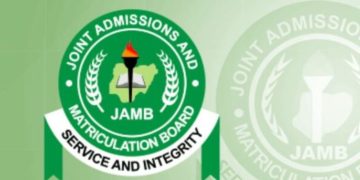
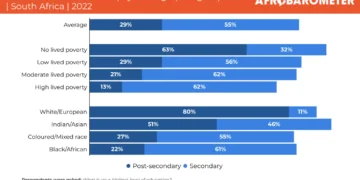

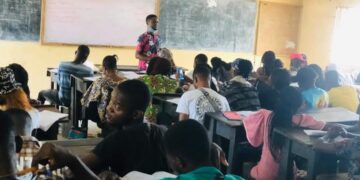
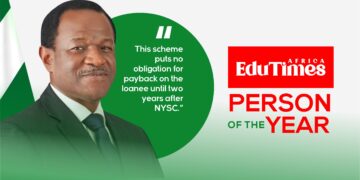









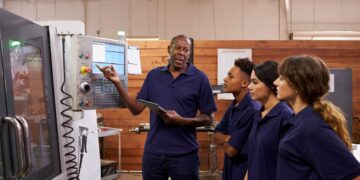
























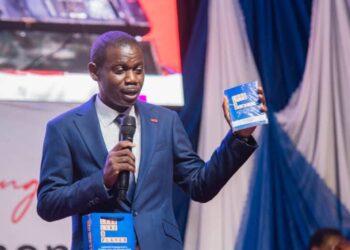



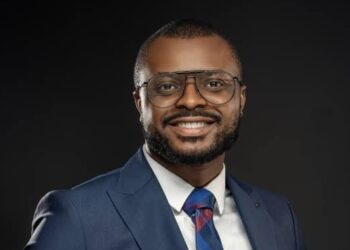
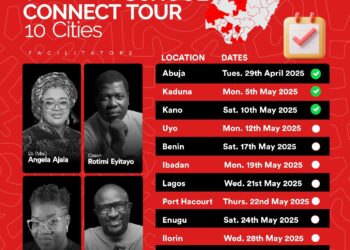

 EduTimes Africa, a product of Education Times Africa, is a magazine publication that aims to lend its support to close the yawning gap in Africa's educational development.
EduTimes Africa, a product of Education Times Africa, is a magazine publication that aims to lend its support to close the yawning gap in Africa's educational development.

